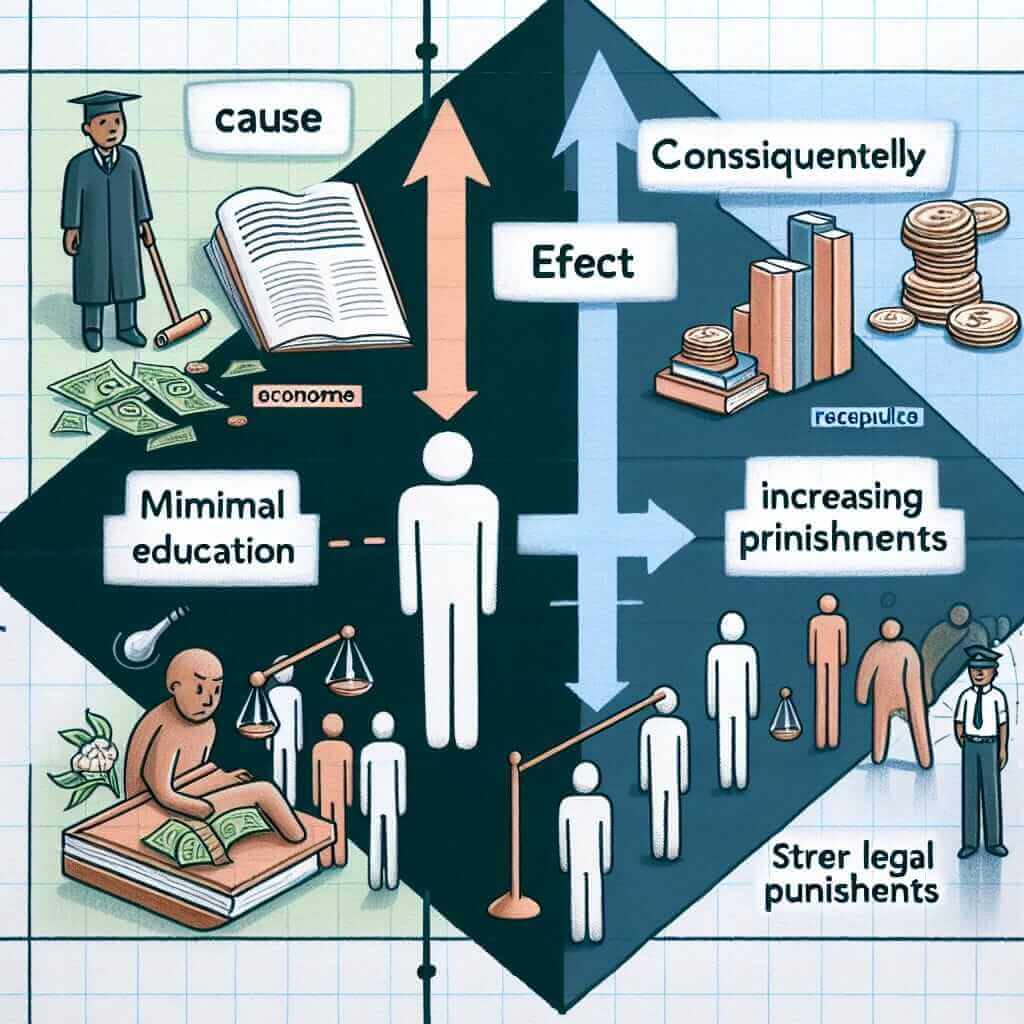“Consequently” is a powerful transition word that can enhance your IELTS writing by showcasing a clear understanding of cause-and-effect relationships. Let’s explore how to use it effectively.
Take a look at these examples:
- The government invested heavily in renewable energy. Consequently, carbon emissions have decreased significantly. (This sentence shows a direct result of the government’s action)
- Many students struggle with procrastination. Consequently, they may experience high levels of stress as deadlines approach. (This highlights the negative consequence of procrastination on student well-being)
- The city implemented a new public transportation system. Consequently, traffic congestion has eased, and air quality has improved. (This example demonstrates multiple positive outcomes)
As you can see, “consequently” links two clauses, clearly indicating that the second clause is a result of the first. This structure helps you present your ideas logically and persuasively.
Understanding “Consequently” and Its Importance in IELTS Writing
“Consequently” is a conjunctive adverb that signals a cause-and-effect relationship between two clauses. It indicates that the second clause is a direct result of the first clause. Using such transition words is crucial for achieving a higher band score in IELTS writing, particularly in Task 2 essays, where you’re often required to present well-structured arguments and logical connections between ideas.
Using “Consequently” Effectively
Formula:
Independent Clause 1 (Cause) + ; consequently, + Independent Clause 2 (Effect)
Breakdown:
- Independent Clause 1: This part of the sentence expresses the initial action, event, or situation that leads to the result.
- Semicolon (;): A semicolon is used to connect two closely related independent clauses.
- Consequently: This transition word signals the cause-and-effect relationship.
- Independent Clause 2: This part states the result, outcome, or consequence of the first clause.
Application in IELTS Writing:
-
Task 1 (Describing Trends): You can use “consequently” to explain the effects of trends shown in graphs, charts, or diagrams. For instance, “The price of oil sharply increased in the second quarter; consequently, the cost of transportation rose significantly.”
-
Task 2 (Essays): “Consequently” is invaluable for presenting logical arguments and supporting your stance. For example, “Climate change is leading to more frequent extreme weather events; consequently, governments must invest in mitigation and adaptation strategies.”
Example in an IELTS Writing Task 2 Essay
Topic: Some people believe that the best way to reduce crime is to impose stricter punishments, while others believe that other measures are more effective. Discuss both views and give your opinion.
Body Paragraph:
Proponents of harsher punishments argue that they act as a deterrent. They believe that the fear of severe consequences, such as lengthy prison sentences, will discourage potential offenders. Consequently, they advocate for mandatory minimum sentences for certain crimes, believing this will lead to a decrease in crime rates. However, opponents argue that this approach fails to address the root causes of crime, such as poverty, lack of education, and social inequality.
In this example, “consequently” effectively links the belief in deterrence to the advocacy for stricter punishments, showcasing a clear cause-and-effect relationship.

Elevating Your Writing: Using Synonyms and Variations
While “consequently” is effective, varying your language demonstrates a wider vocabulary. Here are some synonyms and related phrases:
- Therefore
- As a result
- Thus
- Hence
- For this reason
- Leading to
Remember to use these transitions appropriately and ensure they fit the specific context of your sentence.
Common Errors to Avoid
- Comma Splice: Using a comma instead of a semicolon before “consequently” is a common error. Remember, you need a stronger punctuation mark to separate two independent clauses.
- Incorrect Cause-and-Effect: Ensure a logical connection between the clauses. The first clause must be the cause, and the second clause must be the direct result.
- Overuse: While “consequently” is useful, don’t overuse it. Vary your language with other transition words to maintain reader interest.
Conclusion
Mastering the use of “consequently” can significantly enhance the clarity and sophistication of your IELTS writing. Remember to use it strategically to connect causes and effects, presenting your ideas in a logical and impactful manner. By practicing this technique and using a range of vocabulary, you can boost your confidence and achieve your desired band score.